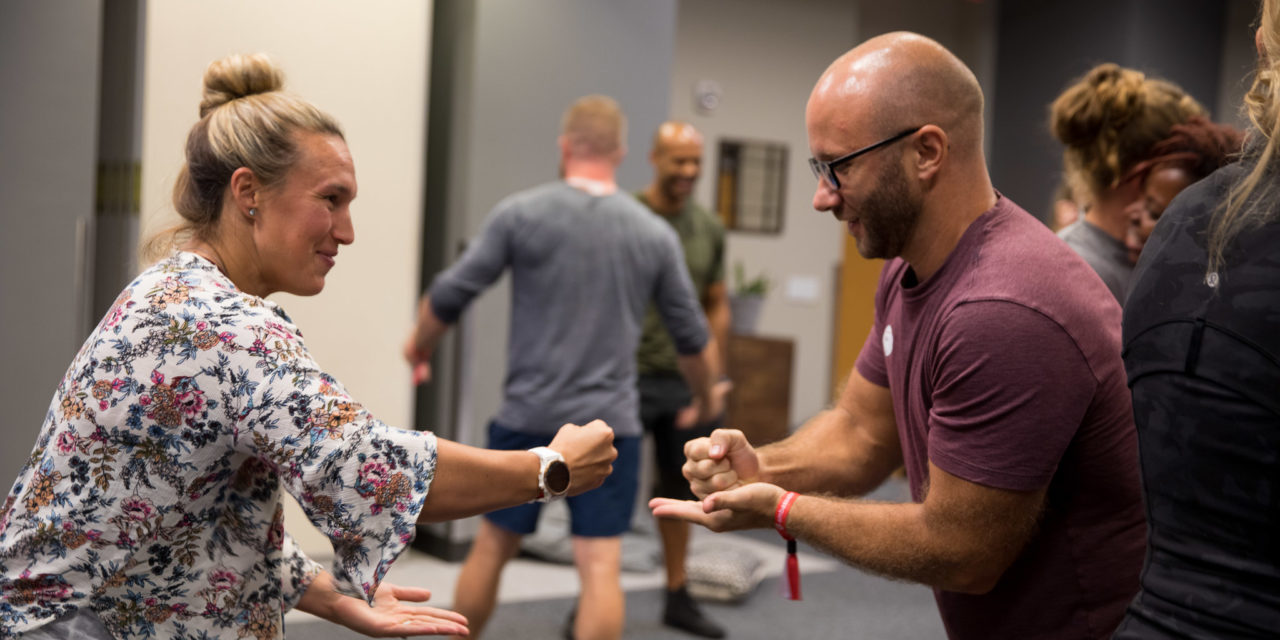Yesterday I spent nine hours listening to the stories of children who have faced trauma.
Some of it was milder than others, like getting in frequent fights or being bullied, and some of it was severe, like being sexually assaulted by a family member.
All of it was damaging to the emotional well being of these young people.
Because of how they handled it, because they were unsafe at home, or because they had no other place to turn, they were living and/or going to school on the campus of a big nonprofit organization that offers several programs to serve children in these situations
As part of the video I’m creating for this organization, we interviewed staff, clinical workers and several of the students.
During the interviews, I started hearing the same groups of words used by the kids.
Every single one of them used the expression “coping skills” when we asked about their experience at the school and residences, if they lived there.
Finally, I had to ask what that term meant to them.
“Well, really, ‘coping skills’ are things we used to calm ourselves down. I like to draw, or play with a Rubik’s Cube and stuff like that. Sometimes you just need to fidget.”
This blew me away because he wasn’t the only child that played with a Rubik’s Cube that day, and definitely wasn’t the only child fidgeting.
This must be a thing because almost everybody, even some of the teachers, used this “Thinking Putty” to calm themselves down. It drove my audio guy crazy, as it crackled with each pull, twist, and squeeze.
But it seemed to work magic on people. I had to look into it further to understand.
According to Science Focus Magazine:
Fidgeting is a response to anxiety or boredom. Anxious fidgeting occurs because the body has elevated levels of stress hormones, which are prepping your muscles for sudden exertion. Research at the University of Hertfordshire in 2005 found that fidgeting improved performance in memory tests and this might be because it lowers the level of cortisol, a stress hormone that interferes with learning. Boredom fidgeting such as drumming your fingers or pen spinning gives your brain something to focus on. This is soothing and reduces the amount of other, less directed, fidgeting.
It all made sense.
These anxiety-filled children (and all of them suffered from some level of anxiety) with muscles prepped for sudden exertion, could channel that energy into something that would allow them to focus and learn, rather than swing on a schoolmate — which was almost always the alternative.
I started thinking about what I use as my own coping skills when I’m stressed. I come from a family filled with anxiety and depression, so it happens often.
I like to read and write, and I guess working out helps me calm down.
But what I learned yesterday lets me know I need to dive deeper and seek out something that really does the trick. Maybe I just need to fidget.
As the day went on, I learned several more things the children use as coping skills. Most of them always included something that required their attention to detail and/or use of their hands, surprisingly.
My favorite of the day was a kid who was obsessed with magic. He carried a deck of cards with him everywhere he went.
Obviously, I made him show us a trick on camera.
“I’ll do magic for anybody who wants to see a magic trick,” he said as he prepped the deck.
“It’s my biggest coping skill. Usually if I’m using cards, I’m not getting mad. I used to get mad all the time if a trick didn’t work, but now I’ve learned that with cards, you can just get back up and try again.”
And out of the mouths and fidgety fingers of babes comes truth.
Featured image via Brittany Buckholz
 Rain Bennett is a two-time Emmy-nominated filmmaker, writer, and competitive storyteller with over a decade of experience producing documentary films that focus on health and wellness. His mission is simple: to make the world happier and healthier by sharing stories of change.
Rain Bennett is a two-time Emmy-nominated filmmaker, writer, and competitive storyteller with over a decade of experience producing documentary films that focus on health and wellness. His mission is simple: to make the world happier and healthier by sharing stories of change.
You can read the rest of “Right as Rain” here, and check back every Wednesday on Chapelboro for a new column!


